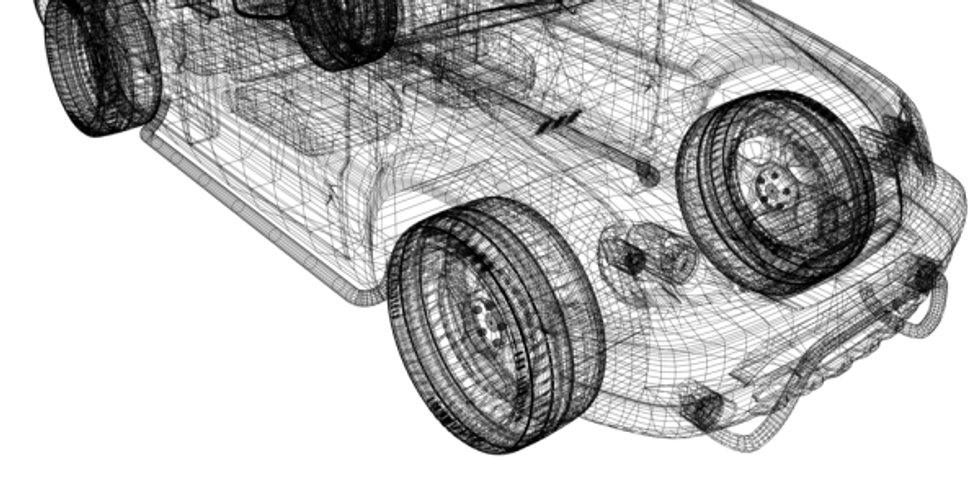
The automotive industry is filled with interesting and varied job opportunities (just look at Indeed.com, 47,000 job opportunities titled under “automotive”)! However, aside from the people who have direct input and influence over the visual look of the vehicles we drive, there are many more who work behind the scenes. Safety and efficiency is important to nearly all drivers and there have been many advances in this area over recent years. For example, a greater appreciation of aerodynamics, that is, the interaction of air with moving objects or vehicles has been enormous, and it’s benefits of safety and efficiency by stabilizing vehicles at speed has not gone unnoticed. When we see a strong gust of wind move an otherwise steadfast object we get a glimpse of aerodynamics at play. This same principal is used in creating cars that glide through the air more efficiently (for better MPGs), and for better handling. The title for an engineer in this field is “aerodynamicist.” This can be a very challenging yet very rewarding automotive career for those who love cars and physics. Not many people are familiar with what an aerodynamicist does in the automotive field, even with the above explanation. However, an image of a wind tunnel and streams of air going over a car are immediately recognizable. Also, the designs you see at auto shows always seem sleeker and more aerodynamic than the years before...Well, that and everything along those lines is what this job entails. However, it’s not all fun and games inside the wind tunnel like Myth Busters or other shows would make you believe. Since wind tunnels are serious business, are very expensive and the tests and analyses run in them have hundreds of variable and different designs that need to be accounted for, and work inside a wind tunnel can be never-ending. Designs and cars must continually be improved and enhanced to fit new benchmarks, and government mandates. The primary concern of an aerodynamicist, besides efficiency, is to create a better driving and riding experience in the vehicle. This includes looking at controlling the drag of the tires, the wind noise and the noise of the vehicle as it moves past other things. The lift of the vehicle as it moves at different velocities along different types of road surfaces is another issue. This is why a newer car can drive more smoothly at speeds never attained in the past by production cars, and why a used car typically never seems as quiet as a newer one. Also, improvement in aerodynamics has enabled cars to be faster. The field of racing-development utilizes aerodynamics very much in order to ascertain advantages over other racers as well as to ensure the safety of their drivers while going at these fast speeds (racing and motorsports is where the big money is at in aerodynamics, but the production auto industry is great too). The work of aerodynamicists include creating computer models of vehicle (as well as real-life replicas of car), and creating other objects and exploring methods that require engineering, mechanical and design skill. They use specialized computer software to aid in design as well as replicating test scenarios. This helps to lessen the cost of physical tests because preliminary testing can be done using computer models. The vehicles will be enhanced repeatedly based on these tests so that when it comes time for the physical test the primary factors would have been accounted for. An aerodynamicist job requires years of study at a technical or other school in order to learn the concepts and how to use the” tools of the trade.” An automotive aerodynamicist would also learn a lot from having worked in the industry and developed hands-on knowledge and skill. Trial and error is a big part of this job, so no doubt it is continuously challenging. Aerodynamicists are multi-functional engineers; therefore, when learning they will have to develop and practice manual skills such as constructing models as well as making the needed modifications. They also need software-related skills to prepare data as well as analyze and interpret it. They will have to prepare reports on the tests they do, the results and document progress. Their work is as much research and development as it is implementation and testing of features. Automotive aerodynamicists fall in the middle salary range for the automotive engineering industry. They tend to make more money the longer they are in the field and the more significant and successful their achievements have been. Engineers that work in racing are likely to make above average if they work for large racing teams in the U.S. or other parts of the world. This field is currently more popular for males than females. However, as more females enter the auto industry a rise in the number of female aerodynamicists can be expected. Aerodynamics may not be one of the most well-known jobs in the auto industry but it is certainly essential to it. It can be a rewarding job but it requires particular skills that must be learned in an academic setting then practiced in the practical setting in order to be mastered. It is a field that allows for continued growth and development as technology is always changing and the ever increasing need and government mandates for fuel efficiency is unavoidable. Automotive career aerodynamicist image from Shutterstock

 Bigstock
Bigstock Bigstock
Bigstock Bigstock
Bigstock


